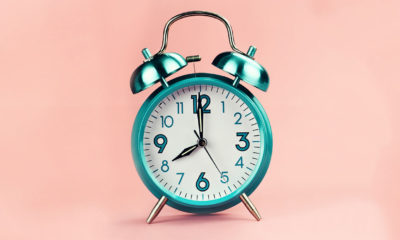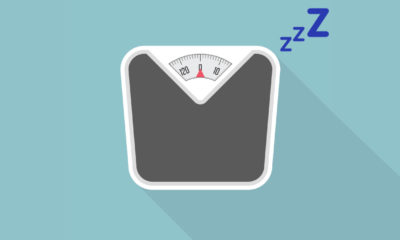Health
How Sleeping Naked Can Make You Healthier
There you are, squatting like a bikini athlete, smashing out high-intensity intervals and making sure your macronutrients fit like a glove, but you’re still struggling to shed that belly fat.
What’s the solution? Should you do an aloe vera cleanse? Buy a waist trainer? Sign up to CrossFit? Well, the answer may lie less in what you do in the gym and kitchen and more in what you do in the bedroom.
No, not in 50 Shades of Grey workouts, but how much importance you place on a good night’s sleep.
Did you know that sleep deprivation and the stress that comes from it can throw your hormones out of balance and make you store fat in your abdominals? Hormones are not just those things that turn us into a cross between Genghis Khan and a Tiny Tears doll every month, they are chemical messengers released into our bloodstream to control our every urge.
They give us our sex drive, help deal with stress, regulate metabolism and decide when and where we store fat. A huge proportion of them are adversely affected by lack of quality sleep.
Modern times are making you fat
Cortisol might sound like a Spanish sun cream, but it’s actually a stress hormone that gives you a short burst of energy to overcome a threat to your survival, like being attacked in an alleyway. In its rightful place it’s useful as it mobilizes energy to get away from danger.
However, these days, we rarely find ourselves in flight or flight situations. Instead, we endure prolonged periods of stress sitting in traffic jams, trying to hit work targets or worrying about bills. This means we have constantly elevated cortisol levels in our blood and cells.
One of the big side effects of producing so much cortisol without the physical need to flee or throw down is an increase in fat storage around the abdominal area, which can be broken down and used to fuel any flights from danger.
Belly fat also contains higher levels of an enzyme called HSD, which activates inactive cortisol. This means the fat cells around your midsection can actually become their own little cortisol making factory.
– RELATED: 5 Quick Tips To Help You Sleep Better –
Dr Shawn Talbot, author of The Cortisol Connection: Why Stress Makes You Fat and Ruins Your Health explains: “Because one of the primary roles of cortisol is to encourage the body to refuel after responding to a stressor, an elevated cortisol level keeps your appetite ramped up – so you feel hungry almost all of the time.
“In addition, the type of fat that accumulates as a result of this stress-induced appetite will typically locate itself in the abdominal area, probably so it will be readily available for the next stress response.”
Being continually-stressed also affects your ability to put on muscle. In his book, Science of Fat Loss, strength and conditioning coach Phil Richards writes: “Excess cortisol impedes the entry of amino acids into muscle cells for protein synthesis and instead transports them back to the liver to be used as energy. This is why individuals involved in strength training may experience a decrease in muscle mass and increase in body fat if they don’t take the necessary steps to reduce or control cortisol levels.”
This means you might not be able to build more muscle.
The stress and sleep connection
Cortisol follows a circadian rhythm, coming up with the sun, peaking around 11 am and declining steadily during the day. Those levels are at their lowest just before 2 am, then they begin to rise again to get us ready for a new day.
This is why we often feel a slump around 4 pm – our body clock is telling us that the day is almost over. It wants us to eat dinner around 5 pm and be in bed by 8 pm.
But for most of us, the day is just getting going at that time. We maybe have a hit of caffeine around 4 pm to pep us up. We finish work, maybe go to the gym and then head home for dinner. And you might stay awake late into the night, watching some pulse-racing show on TV so you’re never fully relaxed.
In his book, Dr. Shawn Talbot writes: “The major problem with our late-to-bed, early-to-rise lifestyles is that our cortisol levels never have time to fully dissipate (which is supposed to happen overnight) so our bodies never have a chance to fully recover and repair themselves from chronic stress.”
Find health advice, sign up to the TRAIN for HER newsletter.






















